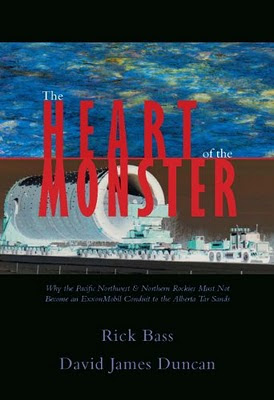wilderness |ˈwildərnis|noun [usu. in sing. ]an uncultivated, uninhabited, and inhospitable region.• a neglected or abandoned area of a garden or town.• figurative a position of disfavor, esp. in a political context : the man who led the Green Party out of the wilderness | [as adj. ] his wilderness years.PHRASESa voice in the wilderness an unheeded advocate of reform (see Matt. 3:3, etc.)ORIGIN Old English wildēornes [land inhabited only by wild animals,]from wild dēor [wild deer] + -ness .
My power to protest this takeover is limited to a language known as English, a feeble prospect at first glance, I admit. But for all its rough and hypocritical edges, English is a wild sonic animal, dynamic, alive, thoughtshaping. And there is an old British word that Americans creatively hijacked, commandeered, and refined to express the well-nigh inexpressible: the word "wilderness." The etymology derives from Old English "wildéor," a combination of "wild" and "deer," and in England, and in colonial times here, the stock of this word was very low. For generations of Manifest-Destiny-spewing china-tipping tea-sipping "Empire builders," the root word "wild" mean out of control, uncivilized, savage, uncultured, rude, pagan, dirty, unreliable, bloodthirsty, bad-smelling, sexually nasty, and low grade–and the innocent word "wilderness" was deemed guilty by association. (John Bunyan: Woefully I walk the wilderness of the world! Shakespeare: Jailed by a wilderness of sea.)How hard it would have been for the ExxonMobils, Shells and BPs if things had stayed this way. But the world "wilderness: underwent a transformation in America, and that transformation had done nothing but bear fruit for two centuries. It thrills me in a patriotic, darned near flag-waving way that the meaning of "wilderness" is one that Americans, as a nation, almost singlehandedly managed to transform. Starting with Thoreau, Emerson, Whitman, and the closet wild salmon-lover Emily Dickinson ("Exaltation is the going of an inland soul to sea"), achieving a more physical but still spiritiual fervor in the rhapsode John Muir, taking on "domionionists" and embracing stewardship via the fearless Rachel Carson, revealing the cathedral-like allure of mountains via the version of Ansel Adams, increasing in groundedness but maintaining reverence in the Zen hippie Gary Snyder–love of the wild has spread to the grassroots via the voices and work of more writers than I could name in a day. But even more, the love of the wild has spread through direct experience of the American wild itslef. As John Muir put it, "Nothing can take the place of absolute contact, of seeing and feeding at God's table for oneself ...The Lord himself must anoint eyes to see, my pen cannot. One can only see by loving." The inhabitants of this continent, wandering through its beauty, fell so in love with their particualr wild places en masse that they began, under the visionary (Republican!) leadership of Teddy Roosevelt, to preserve the best of our wild places as no nation ever had. What's more, when Americans tossed the old, suspicion-ridden definition of wilderness back at Europe, a lot of Europeans cried, "What ze hell were we senking? Vive le Jean Muir!", and began restoring the wilds of their own nations.What is the revamped definition of wilderness? I heard David Brower sum it up rather nicely, just before he died. He said that thanks to the lifelong influence of the wild, at age eighty-six he was still "just a gee-whiz kid." He then described his incredulity the first time he saw a wilderness spring at age six. He was so mesmerized by the sight of what he called "all the clean clear water coming up out of dirt" that, eighty years later, he still sounded gee-whizzy as he exclaimed, "I couldn't understand how it could do it!" Like so many wilderness lovers, he couldn't contain himself: "Who invented all this life?" the old man rhapsodized. "All this beauty and mystery! Every wonderful thing that's out there! How did it all happen? Not in a civilization. In Wilderness."~The Heart of the Monster David James Duncan
























I agree. We will not have peace until we get rid of all the Banks and Hedge Funds.
ReplyDeletesomeone heard you:
ReplyDeletehttp://www.realitysandwich.com/peoples_wall_street
--I postet at 12:17
(room 217 again, same as 237)
and we all shine on . . .